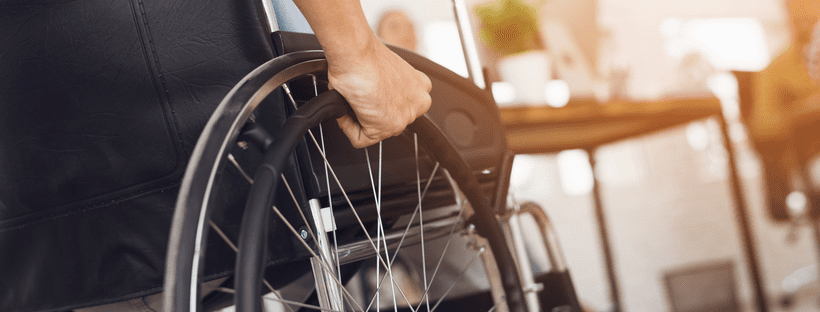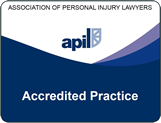What is a personal injury trust?
A personal injury trust, put simply, is a legally binding document which allows any monetary compensation you receive as a result of an incident which has caused you harm to be disregarded when you are assessed for means tested benefits.
Some people may not be eligible for means tested benefits and services at the time of receiving compensation, however it is imperative to be forward thinking.
A person may find themselves in a different situation in the future, for example: if they move out of a family home to live independently, if they move into a care home, if they separate from a partner, if they lose their job or retire, if they lose entitlement to another source of income.
A personal injury trust can also protect your earned compensation from being used to pay for any rehabilitation or care costs if you feel that your compensation may be needed for residential care in the future.
This process might feel overwhelming, but insight into the workings of long-term care for your condition is necessary to alleviate your concerns about the future. Personal injury trusts can be used to protect the following finances:
- A personal injury award.
- Compensation received from the Criminal Injuries Compensation Authority for injuries caused by an assault.
- Compensation received from the Motor Insurers’ Bureau for injuries caused by an uninsured motorist.
- Payments from other government compensation schemes.
- Armed Forces Compensation Scheme award.
- Charitable and public donations following an accident.
- Payments from travel insurance.
- Payments from a professional negligence claim paid to compensate for a previous undervalued personal injury claim
How does a personal injury trust work?
A personal injury trust works by establishing a trust where your money is held by trustees chosen by yourself.
You are required to appoint at least two trustees; one can be yourself and another a friend or family member. Trustees must be over 18 years old and have full mental capacity in fulfilling their responsibilities.
It is often advised that at least one professional trustee such as a specialist solicitor, especially where large sums of money are involved. Once this trust is set-up, a bank account is opened and run for you by your chosen trustees.
Details and guidance on how your money is managed will be clearly laid out to you by a trust document. Appropriate trustees provide valuable advice when making important financial decisions ensuring the effective management of your funds to ensure the protection of your long-term interests.
Although your trustees have control over your compensation award, they are not able to use it for their own benefit as the money remains in your control. The money in the trust is yours and you can access this money at any time.
Personal injury trust account UK
By establishing this specially designated trust, your finances gained from compensation remain separate from your personal finances and you therefore remain eligible for state benefits.
The benefits agency will usually allow a 52-week period from when you receive an interim or final settlement, however it is in your best interest to set up a trust as soon as possible.
Means tested benefits include income support, income related employment and support allowance, income-based job seekers allowance, housing benefit, and council tax benefit.
A personal injury trust also protects entitlement to funding for the costs of living in a residential home, and situation depending, care in a person’s own home. Because of this, a personal injury trust protects the interests of vulnerable people, young, old, disabled or otherwise.
How can I access funds?
Having a trust does not mean that accessing your funds is made incredibly difficult, on the contrary, it should be very straightforward, there may be administrative requirements attached to withdrawing funds, but this is unlikely to cause a significant delay.
You can withdraw money from your trust; however it is recommended that you use this trust to pay for things directly to avoid mixing your trust fund with your personal finances.
Examples of purchases which would not affect your benefit entitlements include the purchase of personal possessions such as a TV, a car, school fees, holidays, and the cost of care.
Your future finances do not need to be uncertain. Setting up a personal injury trust allows more financial flexibility letting you focus on what is important, which is imperative following an incident that led you to look into this trust in the first place.
Does a trust fund affect benefits UK?
One common question we get asked is whether or not having a trust fund will affect benefits awarded in a personal injury claim.
The short answer is that it does not, but there are a few things to keep in mind. First, if you have a trust fund set up before your accident, the money in that trust is not considered part of your estate and thus would not be used to offset any damages awarded to you.
Second, if you set up a trust fund after your accident, the money in that trust may be considered part of your estate depending on how the trust is structured. However, even if the money in the trust is considered part of your estate, it would still not be used to offset any damages awarded to you; rather, it would simply be factored into how those damages are distributed among your heirs.
Ultimately, then, whether or not you have a trust fund should not affect the amount of benefits you are able to receive in a personal injury claim.
Local personal injury solicitors
We all know that accidents can happen. Recovery from such injuries can take time or be life-changing. The financial impact from the loss of earnings and unexpected rehabilitation, medical and other associated costs can be significant, putting you and your family at risk at a time when you are at your most vulnerable.
Whatever the cause of your injury, if it was an accident that you have suffered as a result of someone else’s negligence – either partly or fully – you could be eligible to claim compensation.
At Stonehewer Moss, our expert personal injury solicitors across Cheshire are here to offer you independent, trusted advice to help secure the financial compensation and rehabilitation support you need to get your life back on track.
We handle the majority of cases on a No Win No Fee basis. Watch this short video to learn more.
Talk to one of our personal injury claims specialists
Call us on freephone 0800 434 6544 or 01606 87 22 00


